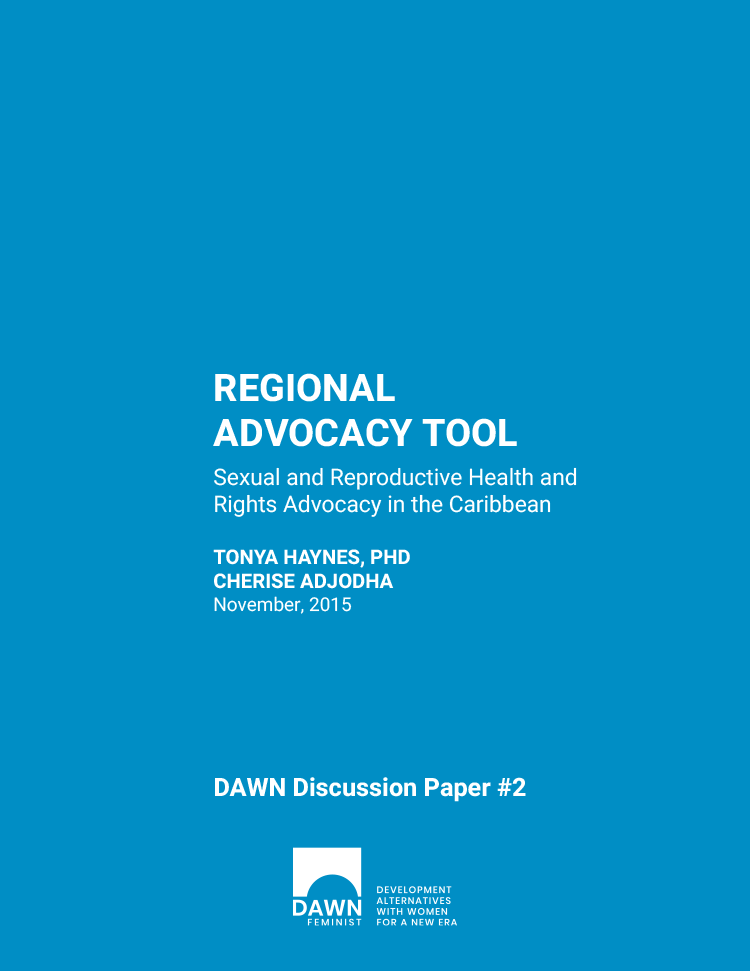Executive Summary
The ICPD Programme of Action (PoA) specified a range of SRH services that countries should strive to provide to make progress towards delivering integrated and comprehensive SRH services. Inter-alia this included contraception, maternity care, access to safe abortion, and the prevention and treatment of sexually transmitted infections including HIV, and reproductive health conditions. While Caribbean countries are guided to a large extent by the WHO in ensuring that the right to health is fulfilled, sexual and reproductive health and rights (SRHR) are typically interpreted in the context of reproductive functions, and therefore are not comprehensively addressed.
The political commitment required for a sexually healthy society in the Caribbean is for governments to recognise sexual health as a fundamental human right and promote it as such. Social institutions, including governmental agencies, need to develop and implement public policies involving clear and precise directions for protecting and promoting sexual health as a fundamental human right.
Legislation is necessary that protects the vulnerable from exploitation (e.g., child prostitution), recognizes the rights of all persons to integrity of the body, protects the rights of sexual minorities to such fundamental human rights as education, health, and employment (e.g. anti-discrimination legislation), and promotes equity across sexual dimensions (e.g. equal opportunity legislation).
Universal access to age-appropriate, comprehensive sexuality education across the lifespan needs to be introduced to many Caribbean countries. And to ensure persons have access to services, an infrastructure of professionals and paraprofessionals specializing in sexual concerns and problems is necessary. This includes the provision of training programs for professionals to specialize in Sexual Health.
The limiting factors to achieving these goals in the Caribbean are often economic, many countries are small and have few resources to allocate to SRHR services, funding provided by other agencies has been delivered to specific services, such as HIV prevention, when an integrated approach to sexual health is the preferred option.
Governments can show they are serious about becoming a sexually healthy society in the areas of education and legislation, by standing against the outdated attitudes of religious leaders who seek to oppose progress based on their own opinions and interpretation of the guidelines put forward by the ICPD PoA. There is much room for improvement on SRH issues across the Caribbean, progressive legislation on abortion and clear direction on the
rights of young and marginalised people to fight child sexual abuse could be the first steps in providing the leadership the region requires to recognise the importance and positive effects that sexual health can have on society in general.

